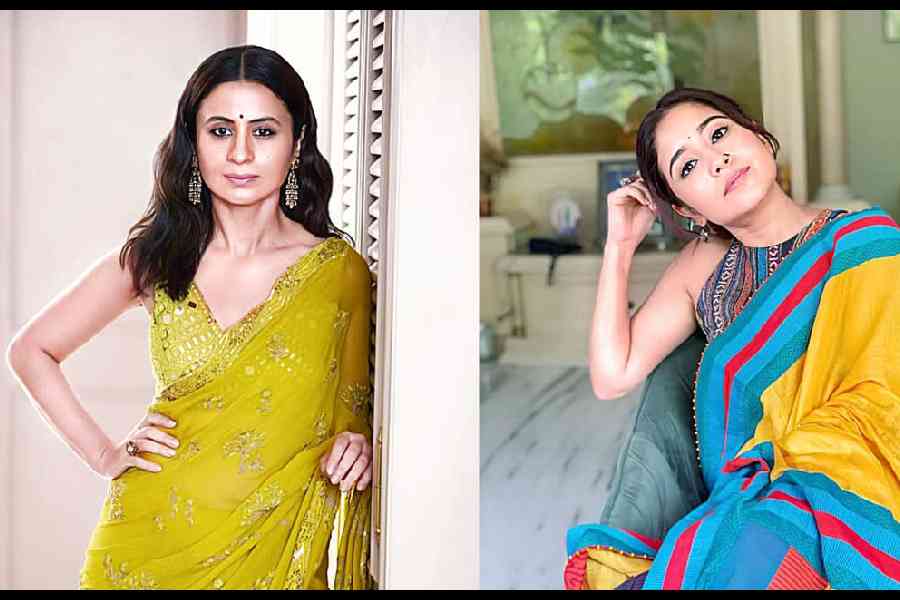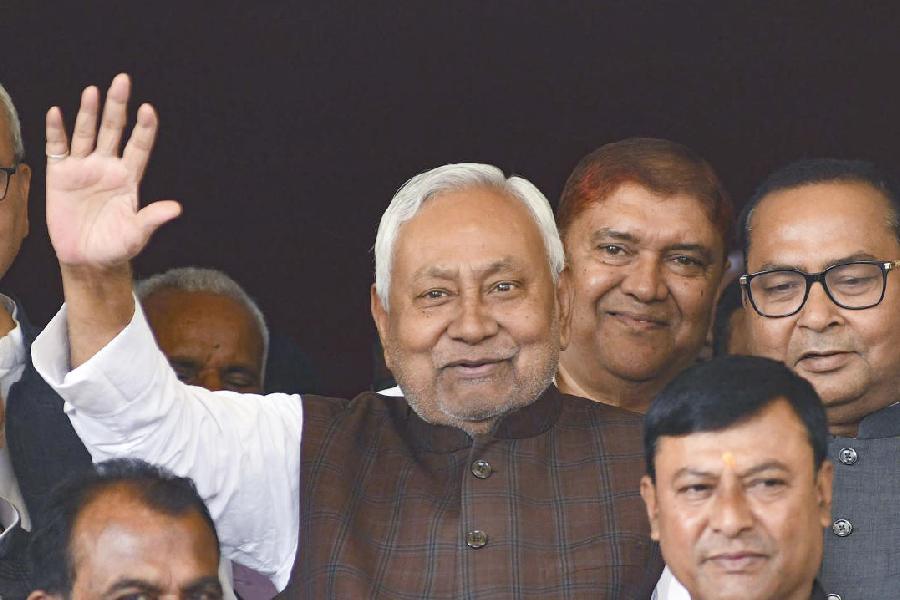Since its first season, Shweta Tripathi Sharma and Rasika Dugal have been an integral part of Mirzapur, playing Golu and Beena, respectively. Both are women with myriad shades and it is to the credit of the two actors that their formidable characters leap out of the screen in Season 3 of the much-loved Prime Video series. t2 caught up with Shweta and Rasika for a chat.
What have the highlights of Season 3 been for the two of you?
Rasika Dugal: I am still absorbing it as an audience. I have enjoyed some of the tracks immensely. I enjoyed the Raheem poet (played by Pallav Singh) track the most and also Ramakant Pandit’s (Rajesh Tailang) transformation this season. He has been the conscience of Mirzapur and to see him change has been heartbreaking.
I am still waiting for friends and family to revert. They are very slow viewers (smiles). It is 10 episodes long, so it takes time. I am waiting to have some conversations with them about what they felt about this season.
Shweta Tripathi Sharma: As a fan, I really enjoyed this season... the emotions, the graph, the mind games.... Also, there is so much to learn from these fabulous co-actors. We all know what happens in the scenes but just to see the emotions on Guddu (Ali Fazal) and Golu’s faces when they meet towards the end is priceless. At that time, they realise that they are the most important people in each others’ lives. The way Golu touches Guddu’s head melted my heart.
All of us are passionate about what we do, especially when it comes to Mirzapur. It has been an extremely satisfying season for most people. From what I understand, some feathers have been ruffled and I was like: ‘Oh, I never expected that!’ I am happy that every kind of feedback is coming in.
The two of you have many memorable acting credits outside Mirzapur. What kind of place does this series have on your filmography across three seasons now?
Rasika: It is my blockbuster side! (Laughs) It is that side which I didn’t have access to earlier. This show has helped me reach a wide audience, something that I had begun to feel the lack of. I am so proud of some of the smaller films that I have done and I was sad that they didn’t get the wide audience that they deserved.
I am grateful for the experience of Mirzapur. I love the fact that every season gives rise to so many memes, gifs and jokes (laughs). It is a well-rounded experience. It has a ready fanbase which is always very effusive and it is lovely to have that.
Shweta: Mirzapur is like a wave! Whether you want to drown in it or get on top and surf is up to you. How you want to see it and experience it is up to every individual. With every season, this wave gets crazier. Every time a season drops, I can feel an energy shift happening on social media.
After Masaan, I was asked by a few people whether I want to do commercial cinema or not. Mirzapur, as Rasika said, is my commercial cinema. I also feel happy that me being a prominent face in a big show like Mirzapur gives some of my other directors — say, Shlok Sharma who directed me in Haraamkhor — the opportunity to get a slightly bigger budget for his next film based on my name. Being on Mirzapur satisfies my greed for being on a commercial project that grabs enough eyeballs so that I can continue telling other stories that I want to be a part of.
Are you referred to as Golu more than anything else now?
Shweta: One hundred per cent! I am also called ‘Golu Devi’ (laughs). I am really enjoying this love.
Season 3 marks a step up for both Golu and Beena. Golu, of course, is now a badass gangster, almost on a par with Guddu. Beena continues to be her scheming self and is a mother now. What were the biggest challenges of bringing alive this shift and this added responsibility?
Rasika: Beena is trying to find her own ground this season because she is finally free from the suppression of the Tripathi men. She is building her place in the pantheon. I feel a little bad for her because at the beginning of the third season, Beena felt that she had found allies in Guddu and Golu. She felt that she could be a part of their little team, but then she realised soon enough that she was not as invited as she thought she was. That is when Beena — in her Beena way — goes back to her original plan of being the head of Mirzapur one day. She also has an emotional connection now with her baby but she has been using it to her advantage. She is really playing that mother card, and how! She even says that she wants control of Mirzapur not for herself but for her son.
But towards the end, with that one little semi-hug with Kaleen Bhaiya (played by Pankaj Tripathi), she realises that she is back to square one.
What I enjoyed was playing the mother card. I have seen a lot of people in my life use that very effectively and I was like: ‘This is my time!’ (Laughs)
Shweta: What is common between Shweta and Golu is that we both are trying to make a mark in a male-dominated society. We have a lot more power, agency, voice than before. We are fighting for it every day.
What I like about Golu is how strong she is in these difficult circumstances. That is true for almost all the women in this show, whether it is Beena or Golu or Madhuri (Isha Talwar) or Zareena (Anangsha Biswas). The women in that society have been told all their lives that only the men can sit on the throne and the women have to be in the kitchen.
The women in Mirzapur are challenging that this season. We are breaking stereotypes not only as these characters but also as actors. Golu makes men uncomfortable with who she is. Like her, I am a rebel. I am a heroine who is all of five feet nothing and I have a husky voice. But I have never allowed anyone to tell me how big or small my dreams should be.
What impact has playing these women left on the two of you?
Rasika: Shooting for anything does remain within you, it becomes an experience in your life. I definitely feel different when I am shooting for Mirzapur. I feel sexier, I feel nice. I have always looked at women who are unapologetically sensual with a lot of aspiration because that was one side that I didn’t allow myself to practise much. I think it is very beautiful to watch a woman owning her sensuality and being comfortable with who she is. Playing Beena takes me there and I really enjoy that a lot.
Shweta: Being a part of Mirzapur has made me realise how little we talk about female desire. It could be sexual, political, emotional... we just do not talk about it. It is so important to celebrate such characters. We don’t need to play black or white all the time. Playing Golu has made me realise that there is a whole chart of colours for a female actor to explore.
As actors, we get to live so many lives and push our emotional boundaries and take those alleys sometimes which are very dark and which we don’t want to be in in real life.
Both of you have broken many barriers as far as portraying desire on the Indian screen is concerned. What still holds us back from exploring more?
Rasika: I think we have a long way to go. It is complicated because it is still integrally connected to all the references that we have been brought up with. It is hard to leave behind a whole history of sexualised references. We all feel that there is a need to say things differently but one doesn’t have the skills to say it. That is because we have seen things happening in a certain way all along. It is a tricky territory because of the secrecy around desire that has been built. Also, there is a very fine line between sexualisation versus showing a woman with agency.
What I would like to see women do more of on screen is comedy. I want to see women in central roles in comedic material. I feel that there is a problem in connecting women with comedy in a patriarchal society. Which is strange because how else would women survive in a patriarchal world if we didn’t have a great sense of humour?










